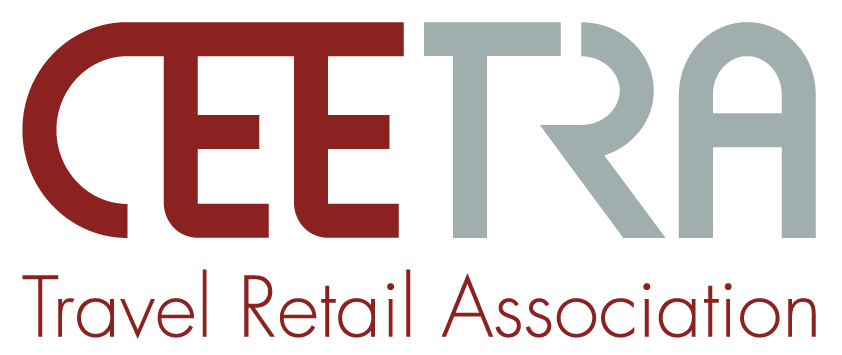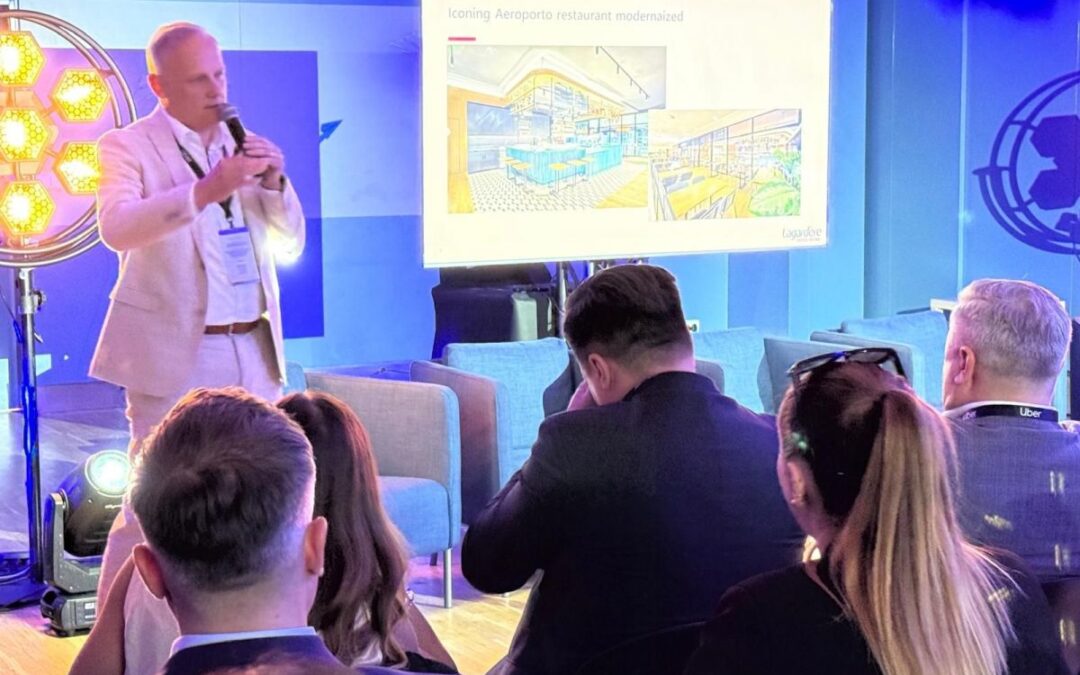CEETRA pairs up with the Airport Innovation Roundtable 2025 in Prague for this year’s Travel Retail Forum: Key Insights from Prague
Thursday, 12th June 2025 (Prague). The Airport Innovation Roundtable 2025, held at Prague Airport on June 12th, brought together leading voices on invitation by the V4+ Airports Association and the Central and Eastern European Travel Retail Association (CEETRA). Supported by Prague Airport, the event served as a vital platform for industry leaders, policymakers, and innovators to discuss the future of aviation, airport operations, and travel retail in Central and Eastern Europe. The conference featured a welcome reception sponsored by Prague Airport, fostering networking and collaboration among participants.
The conference addressed the rapid recovery and growth of air traffic in the region, the evolving profile and expectations of passengers, regulatory challenges, and the transformative power of experiential retail. The biannual CEETRA Travel Retail Forum, integrated into the program, focused on the unique dynamics of travel retail in Central and Eastern Europe, highlighting both opportunities and threats for the industry. Among the numerous presentations and panel discussions, some were particularly relevant for the travel retail industry.
Stanisław Wojtera (Chairman of V4+ Airports Association) opened the conference by emphasizing the V4+ Airports Association’s mission to foster collaboration, share best practices, and strengthen the region’s position in the broader european aviation landscape. Andrzej Miłaszewicz, Chairman of CEETRA, followed by underlining CEETRA’s advocacy role for the duty free and travel retail industry. He stressed, that “our goal is to protect, promote, and facilitate the region’s duty-free and travel retail channel by providing the means to obtain the most favorable trading environment for travel-related commerce.” During the opening ceremony, Jiří Pos, Chairman of the Board at Prague Airport, welcomed delegates to the airport’s conference centre and his city and outlined ongoing development plans aimed at making Václav Havel Airport Prague a model for modern, passenger-centric airports in Europe.
Amanda Khuong-Duc – Head of Strategic Foresight and Innovation, Gharage – delivered a keynote drawing on research from Gharage, Gebr. Heinemann’s innovation hub. She revealed that 64% of travelers want to spend less time at airports, and consequently average dwell time has already shrunk by 15 minutes. She showcased Gharage’s future-focused concepts, including “ROKI,” a robotic kitchen delivering fresh, healthy meals at scale, and “Gate Zero,” a retail concept designed to engage non-shoppers and introduce new brands through social media-driven experiences. Moreover, she shared her current exploration on AI
Agents in the airport environment and how their application can bring more ease and convenience to the traveler journey. In her closing thoughts she suggested to the audience, that “we need to ask ourselves how can we create spaces, services and products that lower stress, increase satisfaction and actively encourage travelers to arrive early at the airport.”
The speech was followed by a panel discussion with airport experts on how AI is being used today to improve airport operations, for example in predicting operational conditions in the future, or analysing suspicious behaviour of passengers.
Anna Marchesini, Head of Business Development at m1nd-set, presented the latest research on passenger behavior and travel retail shopping trends in Central and Eastern Europe. She reported that air traffic in the region has surpassed pre-pandemic levels, with airports in CEE expected to host 1.1 times more guests than in 2019. Moreover, duty free stores attracting above-average footfall but lagging in conversion and spend compared to Western Europe. Alcohol, perfumes, and confectionery remain the top categories, and basket size is maximized (both in terms of number of items bought and total spending) when key categories are purchased combined – a currently underexploited opportunity. Gifters are bouncing back remaining more relevant in CEE vs Western Europe. However, she said, “CEE travelers are especially responsive to in-the-moment triggers—making visibility, engagement, and on-site conversion tactics critical to success.”
In a second session, Marchesini explored how experiential retail can drive footfall and conversion. She explained that as price advantage loses importance (at the same past as Western Europe, but slower vs AsPac) travelers—especially Millennials and Gen Z—are increasingly motivated by unique, interactive, and memorable experiences. In the current landscape, experience has become the next currency in Travel Retail. Integrating local culture, technology, and personalized service is key to engaging today’s airport shoppers. “Experience in-store becomes the number one driver to purchase: travelers want more than products—they want memorable moments,” she added.
Sardor Varisov shared the story of EUPHORIA, his Czech cannabis-infused spirits brand that broke into airport retail by offering unique, giftable products tailored to the travel environment. He discussed the operational challenges small brands face in duty free, from regulatory hurdles to marketing demands, and stressed the need for airports to embrace innovation and diversity on their shelves. “Most airport shops are predictable—Euphoria stands out by creating curiosity and smiles”, he said.
Richard Prochazka, CEO of Lagardere Travel Retail Czech Republic showcased the transformation of Prague Airport’s commercial and F&B offer, including a complete redesign of retail and dining spaces to cater to evolving passenger profiles. He highlighted the emphasis on local brands, healthy food options, and interactive store layouts. “We have completely redesigned our commercial offer in response to evolving passenger profiles— future is local, healthy, and experience-driven.”
Julie Lassaigne, Secretary General of ETRC, provided an overview of European policy developments affecting travel retail, including sustainability legislation. “Our mission is to create the regulatory environment to allow the European duty free and travel retail industry to flourish—and to protect it when challenges arise,” she noted. While value sales for European airport retailing reached record highs in 2024, the sector faces increasing complexity from new regulations and consumer expectations in a challenging geopolitical context.
Ricardo Oliveira explained the threat that the duty free industry is facing under article 13.2 of the WHO’s Protocol to Eliminate Illicit Trade in Tobacco Products. He made clear that the industry strongly supports the overall objective of the Protocol to curb illicit trade. However the industry vehemently rejects the false accusation that duty free is a significant source of illicit trade. Indeed, the duty free sector operates with the most secure and regulated supply chain in the world.
Ricardo also highlighted the negative economic impact for the travel ecosystem if further unjustified restrictions are imposed on the duty free market. For these reasons it is vital that the duty free industry and airports work together to engage with the relevant government authorities. Finally, he expressed the importance of industry engagement in Central and Eastern European countries in the run up to the fourth Meeting of the Parties (MOP4) to the Protocol, taking place in Geneva in November, given the region’s importance and influence within the EU.
The Airport Innovation Roundtable 2025 and CEETRA Travel Retail Forum highlighted the resilience and adaptability of the travel retail sector. Speakers agreed that future growth will depend on embracing innovation—both in retail experience and regulatory engagement— while staying attuned to the evolving needs of travelers. Closing with a gala dinner at one of Prague’s most prestigious roof-top venues, attendees used the opportunity to network and
exchange ideas and contacts.
–ENDS–
Notes for editors:
CEETRA – Central and Eastern European Travel Retail Association aisbl. • A regional industry association organising companies involved in the duty-free and travel retail industry in the Central and Eastern European region.
• Representing companies in Albania, Austria, Bulgaria, Czech Republic, Croatia, Hungary, Kosovo, Macedonia, Montenegro, Poland, Romania, Serbia, Slovakia, Slovenia and Ukraine involved in supplying and retailing goods to traveling consumers in all duty free and travel retail outlets throughout the Central and Eastern European region.
• The association’s aim is to protect, promote, and facilitate the Region’s travel retail channel by providing the means to obtain the most favourable trading environment for the travel related commerce.
• CEETRA contact for press enquiries: patrick.bohl@ceetra.org | www.ceetra.org

